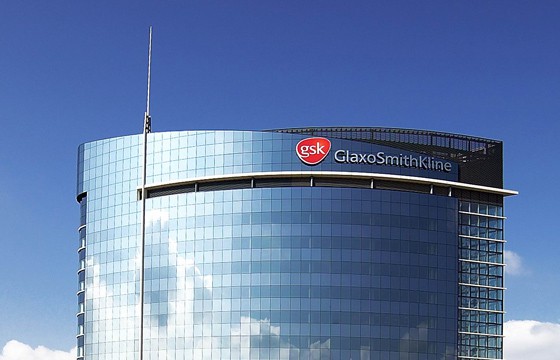
GlaxoSmithKline is on course to broaden the label of its PARP inhibitor Zejula, after announcing yesterday that the US Food and Drug Administration (FDA) had accepted a new application for the drug.
GSK is seeking approval for Zejula (niraparib) as a first-line maintenance treatment for women with advanced ovarian cancer who responded to platinum-based chemotherapy, regardless of biomarker status.
The FDA will review Zejula under the real-time oncology pilot programme – a review process which aims to efficiently assess safe and effective treatments to ensure patients gain access as early as possible.
The application is supported by results from the PRIMA study, in which treatment with Zejula resulted in a 38% reduction in the risk of disease progression or death among ovarian cancer patients.
For women with BRCA mutation tumours, the risk reduction was even greater, with an impressive risk reduction rate of 60%. For women with HR-deficient BRCA wild type tumours, the risk reduction was 50%, while those with HR-proficient tumours had a risk reduction of 32%.
If GSK does win approval for the Zejula in this ‘all-comer’ category, it could help the drug to maintain its place in a market which is currently dominated by AstraZeneca’s rival PARP inhibitor Lynparza (olaparib).
Lynparza has been the dominant drug in the PARP inhibitor category since AZ and Merck began co-developing the drug in 2017, and is already a blockbuster treatment.
PARP inhibitors came into the market on the strength that they can destroy BRCA-mutated tumours through synthetic lethality. However, as this new application and supporting data shows, this type of drug can demonstrate benefit in certain cancer types regardless of a patient’s genetic status.
Lynparza, like Zejula, has data which backs up its use in ‘all-comer’ ovarian cancer patients – when added to Avastin (bevacizumab), the standard of care for ovarian cancer, the treatment improved progression free survival by a median of 22.1 months compared to 16.6 months for those treated with Avastin alone in patients regardless of biomarker status.
Other competitors in the class include Pfizer’s Talzenna (talazoparib) and Clovis’ Rubraca (rucaparib) – the latter of which recently beat its rivals to the punch in prostate cancer, for which is currently under review.
Currently, Zejula is approved as a maintenance treatment for women with recurrent ovarian cancer which is responding to platinum-based chemotherapy regardless of BRCA mutation status, as well as for women with advanced ovarian cancer who have already had treatment with three or more chemotherapy regimens.




